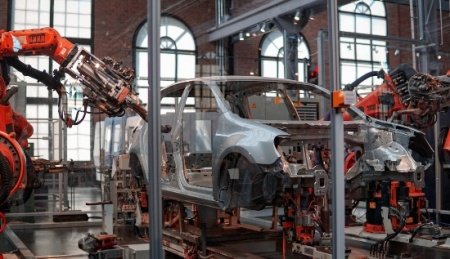Toyota Expects To Miss Its Annual 9 Million Vehicle Production Target
Competition for semiconductors meant it didn’t have enough to ramp up car output to offset production lost during the pandemic last year.
“Hitting the 9 million mark is going to be extremely difficult,” Kazunari Kamakura, an executive at the world’s biggest carmaker, said during an online briefing. Toyota, he added, could not predict how long the chip shortage would last.
Toyota and other automakers have been forced to curb production even as demand in key markets such as China has rebounded. In addition to tackling chip shortages caused by COVID-19 supply-chain disruptions, carmakers also have had to contend with soaring semiconductor demand at consumer electronic companies.
The surge in Omicron infections did not factor into the latest production outlook, but it is, nonetheless, a concern for Toyota, Kamakura said. Toyota’s business year runs from April to March.
COVID-19 lockdown restrictions last year disrupted supplies of components from plants in Southeast Asia.
The maker of the Corolla compact sedan said it will build 700,000 cars globally in February, more than last year, but 150,000 fewer than it had initially planned.
To reach its annual 9 million production target, set in September, Toyota would have to build 1 million vehicles in March.
In North America, Toyota forecasts a reduction of about 25,000 to 30,000 vehicles in February.
SOURCE_https://www.reuters.com/business/autos-transportation/toyota-expects-annual-production-target-shortfall-chip-shortage-drags-2022-01-18/
Precision Machining Of Connecting Rods
IBM And Samsung Unveil Semiconductor Breakthrough
Vingroup Officially Began Construction Of The VinES Battery Manufacturing Factory
Rockwell Automation Outlines Tech Trends Driving Industry 5.0
WANT MORE INSIDER NEWS? SUBSCRIBE TO OUR DIGITAL MAGAZINE NOW!
CONNECT WITH US: LinkedIn, Facebook, Twitter










